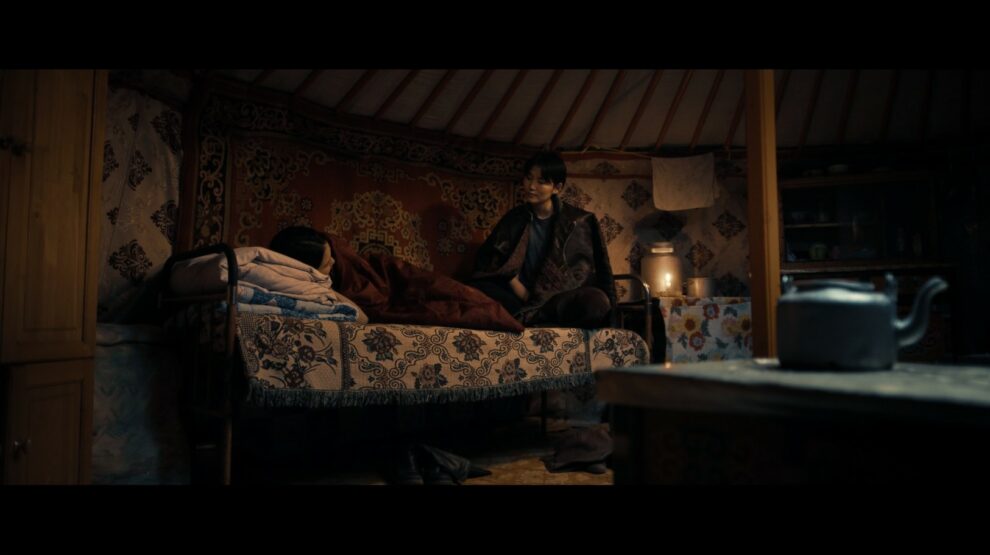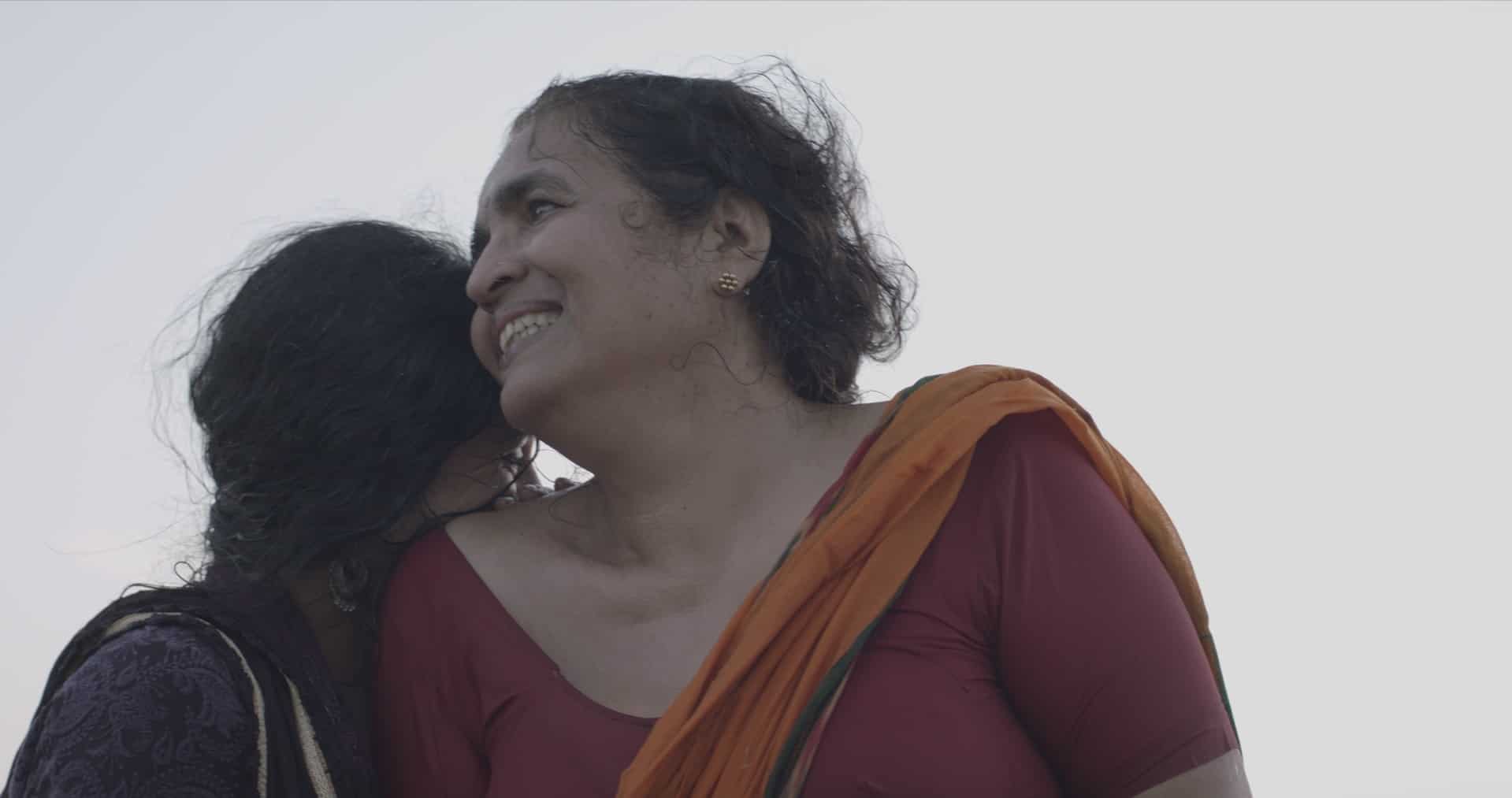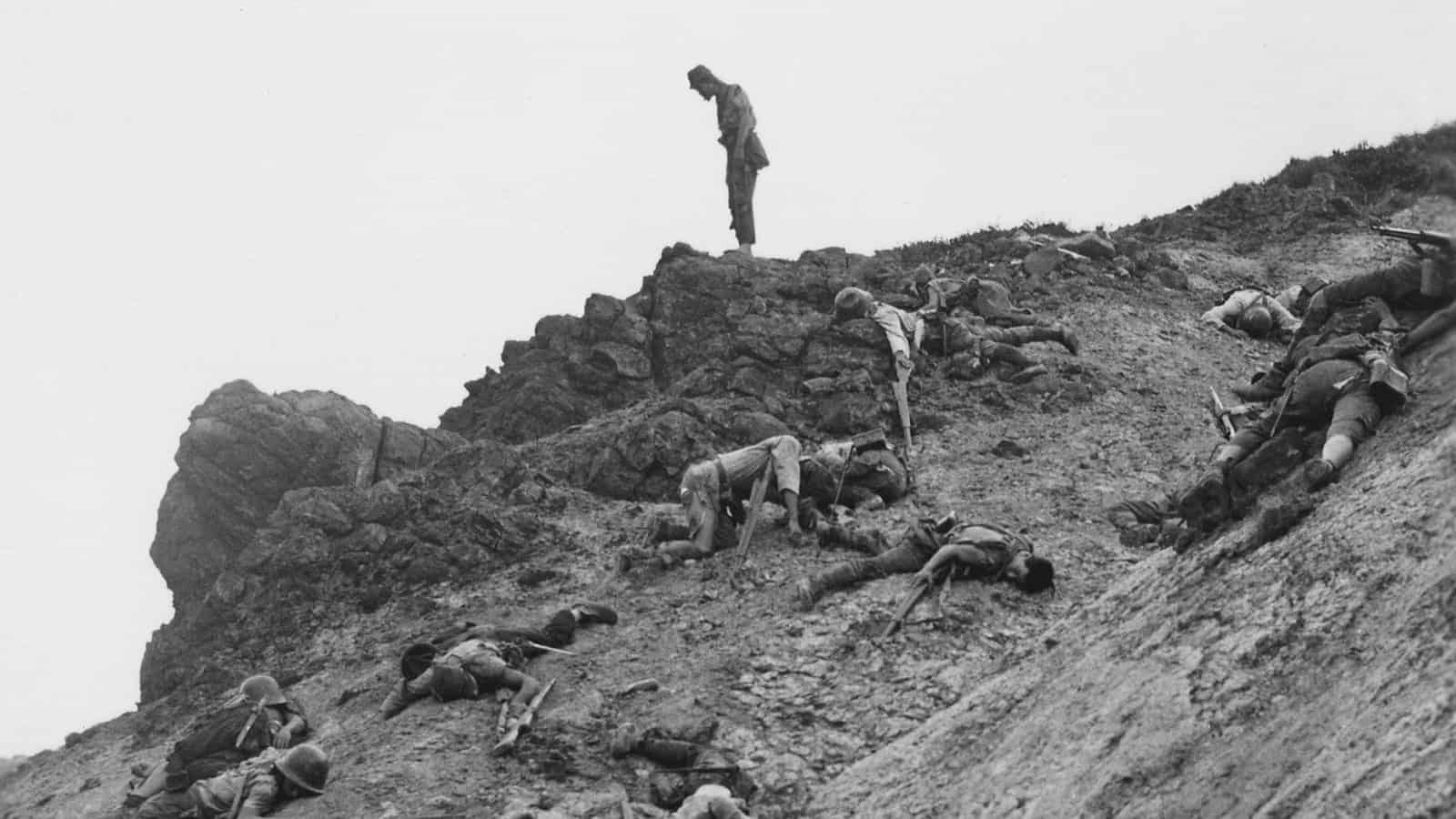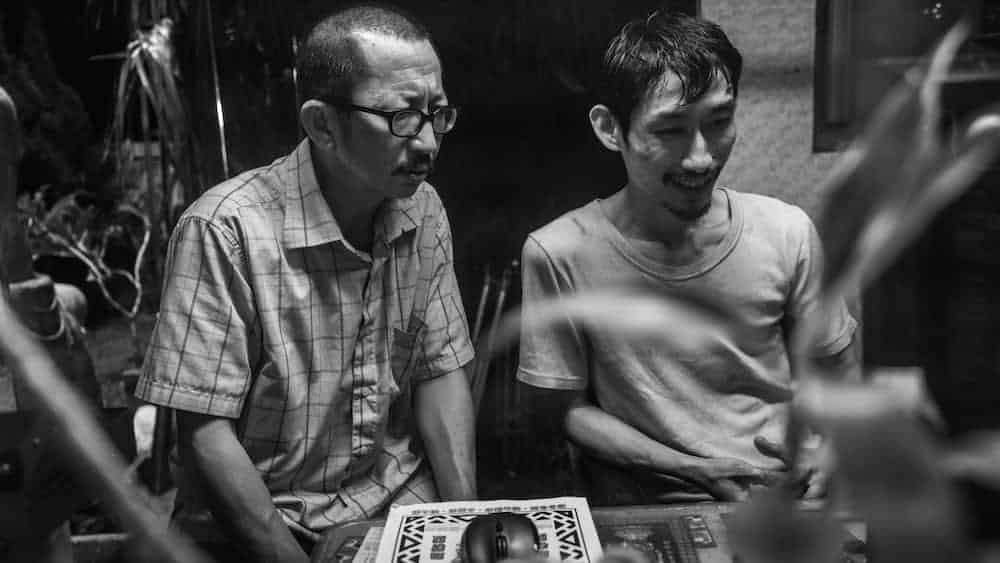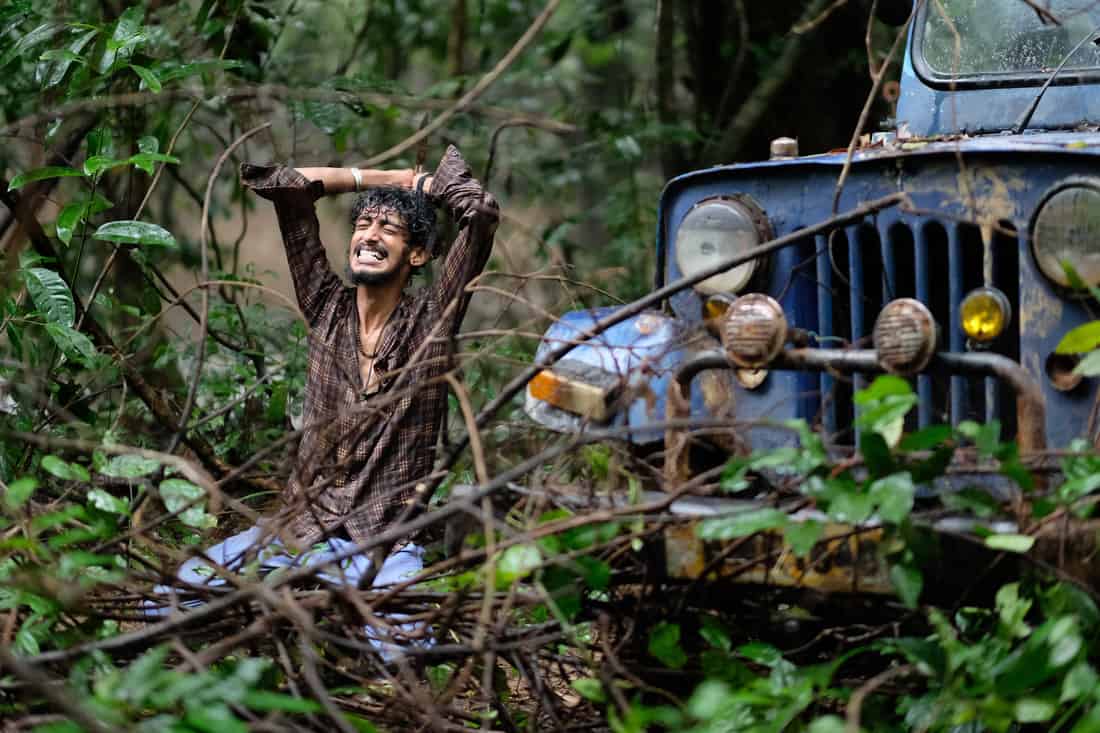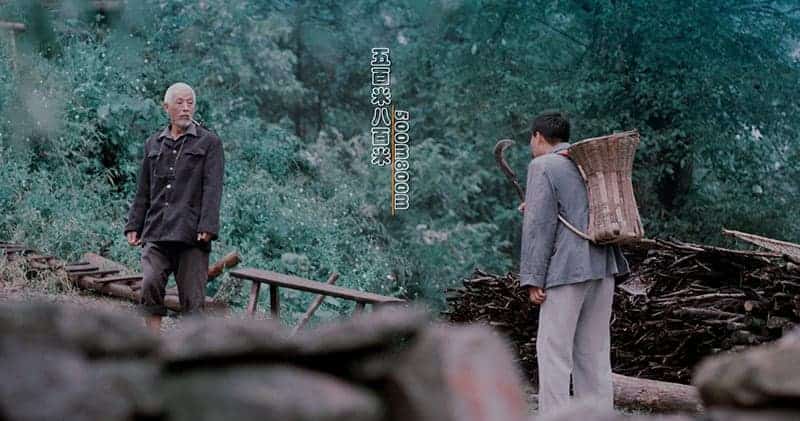This year, only six Asian films (in the most broad geographical sense) out of 20 titles competed in the Official Competition of Tallinn Black Nights Film Festival. If there is one among them that stood out in quality, that's Batbayar Chogsom's sophomore drama “White Flag”, set up in the breathtaking vast Mongolian steppe surrounded by dramatic, naked mountains.
“White Flag” is screening at Tallinn Black Nights
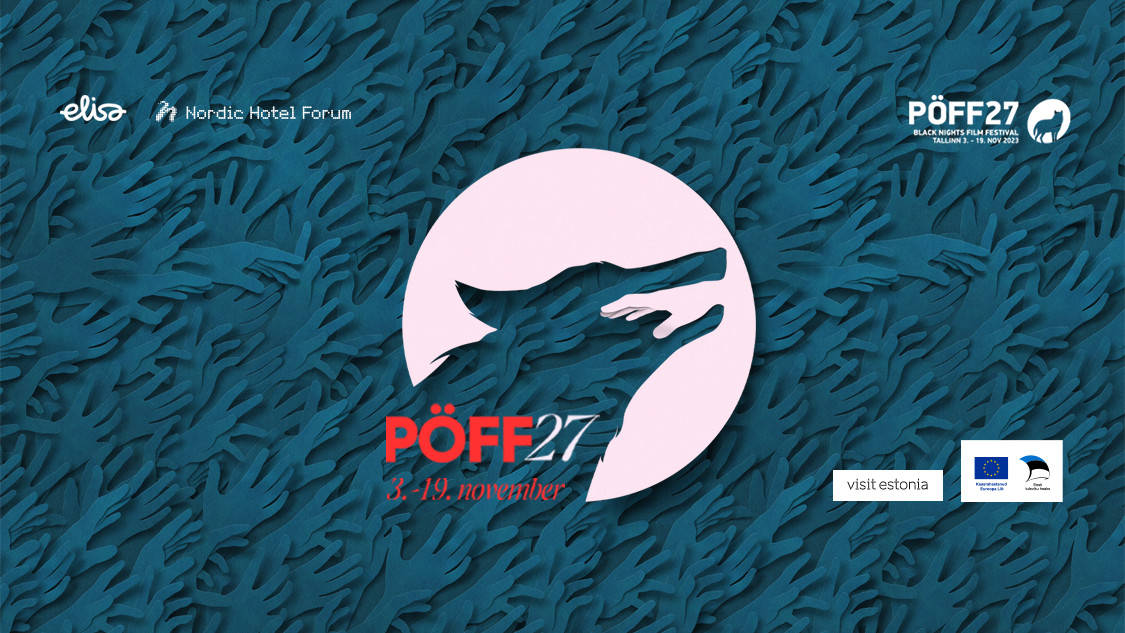
Batbayar gained international attention with his debut “Out Of Paradise” (2018) that brought him Best Film Awards at the Shanghai International Film Festival, something that he still calls “quite unexpected”. It took five years for the Swiss-Mongolian helmer to make his second movie, mainly due to a couple of unsuccessful attempts to get funding for other projects he wanted to shoot in Switzerland. When fighting for financing proved futile, Batbayar decided to turn his gaze to his native country yet again, and he returned to Mongolia to make another independent, warm movie about people who want to live simple, happy lives in a place that the majority of ‘townies' normally do not associate with happiness.
While in his first feature, a heterosexual couple of wanderers decides to seek help in Ulaanbaatar; in his sophomore drama, a young lesbian couple leaves the capital to seek shelter in a place they believe to be remote enough from observing, judging eyes. The yurt settlement doesn't quite offer what they hoped for, as the land they came to take over from the previous owner, although far away from the first village, is never un-observed by the curious herders, who also like to mark the land to prove who is the boss.
Check also this interview
Naran (Urtnasan Erdenebayer) and Saran (Erdenetsetseg Enkhbayar) are proved wrong about being safe almost instantly after moving into their yurt, when one of them gets hunted down the valley by a drunken man who tries to rape her. The reason he doesn't succeed becomes one of the narrative's key events in this story of love, trust, betrayal and rage. In terms of very wide shots that make the nature swallow people's hopes, “White Flag” can be compared to western classics, but also – concerning a similar setting in which a chase on a woman takes place (and only in this regard) to “Territory of Love” (1991) by Nikita Mikhalkov.
As contradictory as this may sound, another very western component of the movie is the original score by Yukio Elien Lanz that involves a lot of Mongol-Tuvan throat singing that is as sexy as a harmonica solo in Morricone's music for “Once Upon A Time In The West” (Sergio Leone, 1969). There is a good balance between the use of the score, its blending with the sound of the nature, or a complete absence of it.
When it comes to the plot itself, its multiple-layered structure does lead to a confusion or two, especially regarding the past of both women and the detective's spectacularly daft job as an officer in charge of a place in which nothing ever happens. His character is as much a picture of a Hollywood loner cop, as it is the one of a seductive Asian man with a big secret who finally gets a chance to bring a bit of a color in his lonely, dusty life with the appearance of new settlers.
When two women come to the secluded rural area and start living alone as herders, they logically become a magnet for sudden visitors, but one of them isn't just a friendly neighbour or a nosey-parker. Cooler-than-life motorbike-riding detective Zorig (Samdanpurev Oyunsambuu) senses that his boring life is about to change its course the moment he realizes the women's arrival coincides with a sudden disappearance of one drunkard, famous for his aggressive outbursts when intoxicated. Zorig makes it his habit to visit Naran and Saran – who present themselves as sisters – almost every day. Slowly, there is a strange dynamic being built, with Batbayar stepping into his favorite ground of complicated relationships in which being faithful isn't a thing. I dare say that in this case, he is forgetting the sexual orientation of one of the lead characters of his own story, and even more so her background and the reason for her voluntary exile. At the same time, one could argue that Naran's wrongly made decisions come from her wish to protect herself and her girlfriends from a running investigation.
Interesting is that despite of ‘lotta love' “White Flag” does not have any sexually explicit scenes because intimacy stays more important throughout the film even when one of the women lets her Lady Godiva out. First-timers Urtnasan and Erdenetsetseg are able to bring the closeness of a couple they are portraying to the screen in scenes from the everyday life – telling each other bedtime stories, taking care of the land or bathing. Lukas Graf's lens is as close to the actresses as it goes without breaking the magic of their interaction, and the images taken inside of a real yurt that served as the women's home are full of warmth.
The world premiere of “White Flag” – which also happens to be one of the few Mongolian LGTBQ+ feature – in the Official Competition in Tallinn is a solid springboard for its further international screenings.


